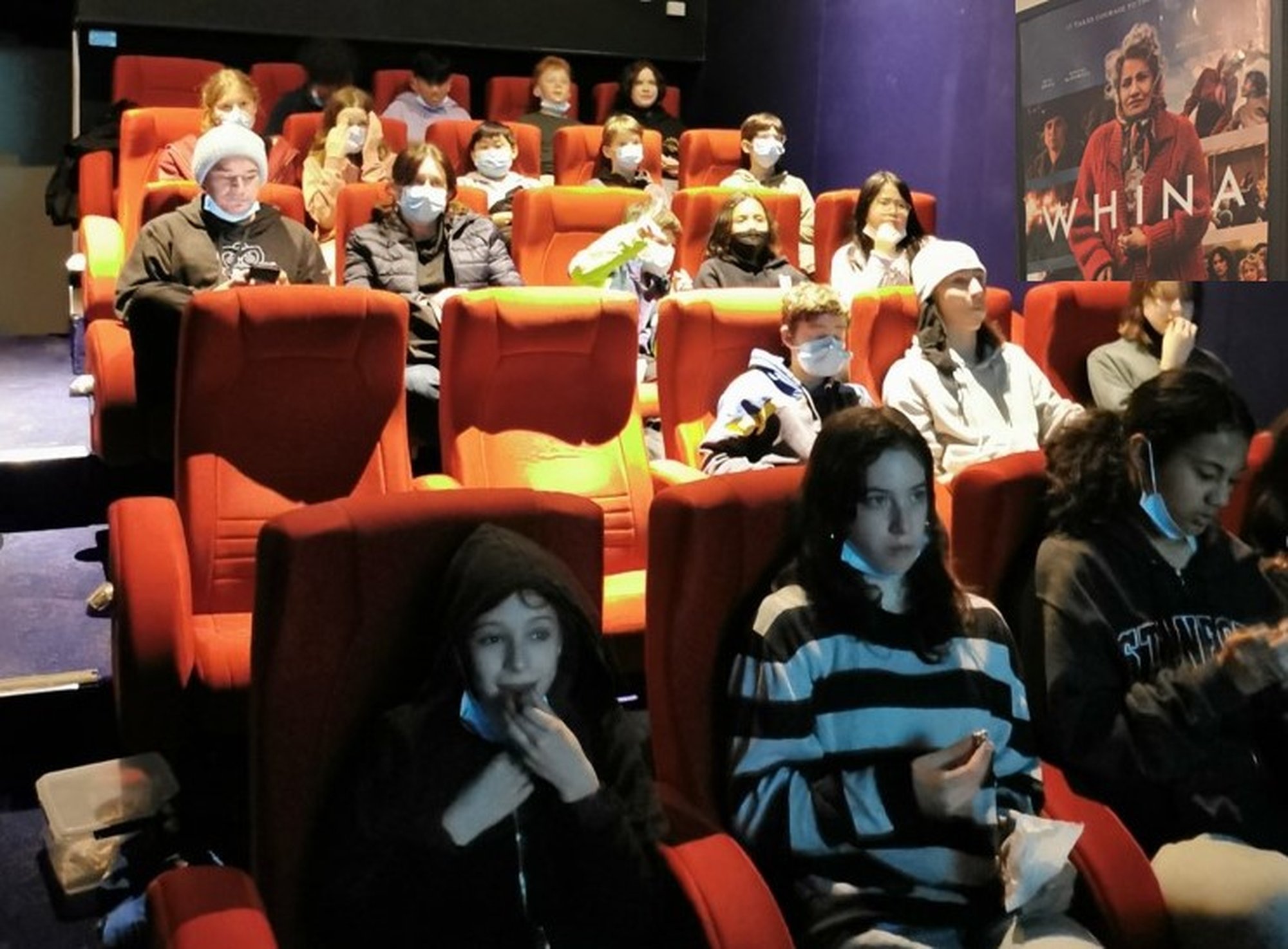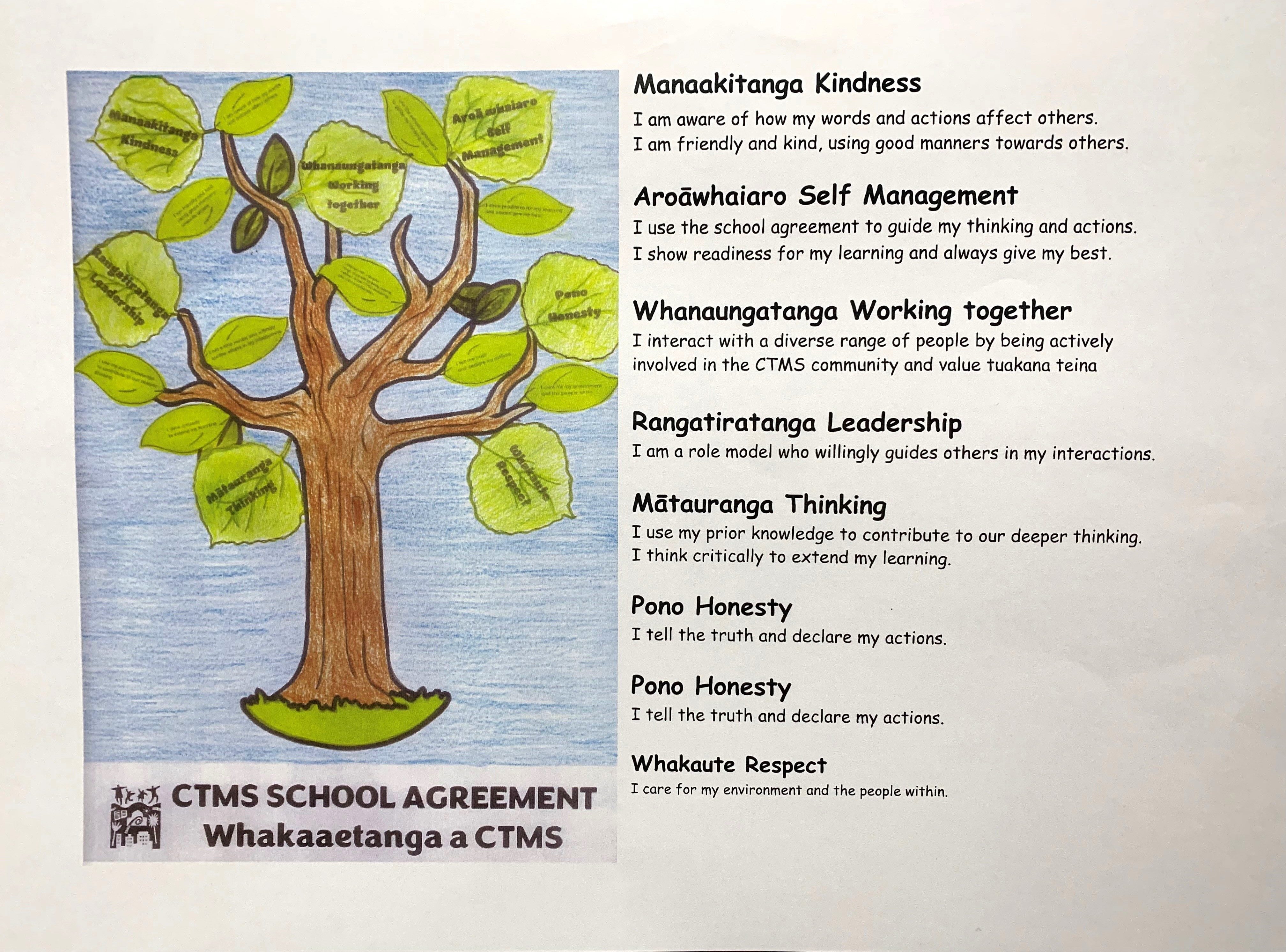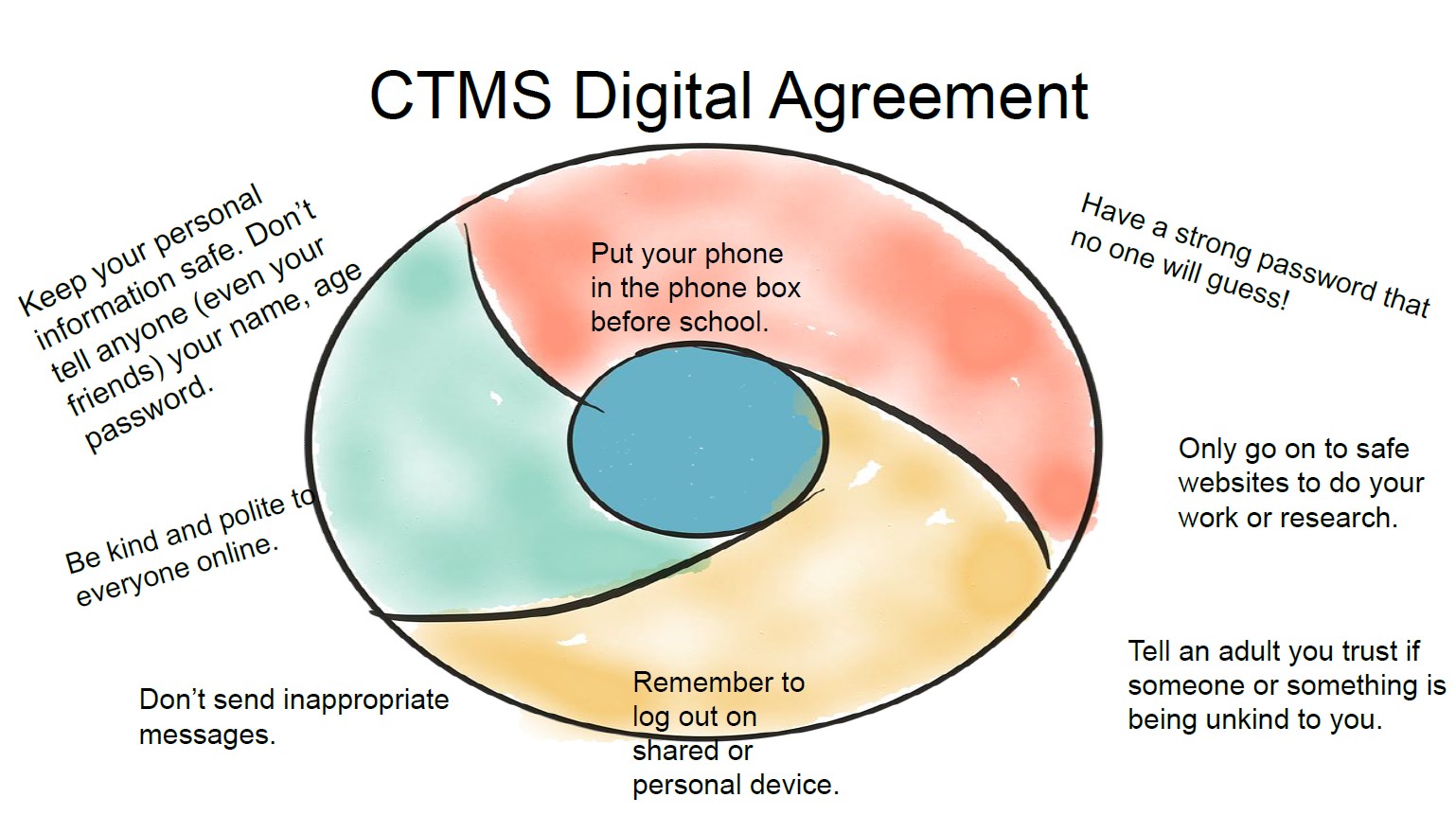Values & School Agreement

CTMS Values
- We love learning and discovery.
- We respect relationships and cultures, are inclusive, and promote culturally sensitive attitudes and practices.
- We hold in high regard self-confidence and leadership.
The CTMS Community believes…
- The whole of the school benefits from the provision of a happy and welcoming environment
- The school should strive to be innovative, versatile and successful
- An effective school is achieved through a partnership of teachers, children and their families
- Open communication is essential
- All children should be encouraged to realise their own intellectual, social, physical and creative potential
- As well as having a solid foundation in numeracy and literacy skills, children need to be taught a broad curriculum
- Learning is enhanced when everyone has the opportunity to work with a range of children and adults
- Children need to take responsibility for their own individual behaviour and learning
- Children need to develop self confidence and leadership skills
- Individuality and group cooperation are both important
- It is important to respect people and property
- The school benefits from and has a significant contribution to make to, teacher training
- Shared decision making and management is a fundamental philosophical value of the school

Our School Agreement
At the start of every year the student and staff focus on the School Agreement, contributing their ideas on what sort of place they would like Clifton Tce Model School to be and what actions they would like to see to ensure their vision is achieved. This year the students have responded to the Key Competencies that are embedded in the New Zealand Curriculum and have used these as a framework to develop our School Agreement.
The New Zealand Curriculum identifies five key competencies and identifies them as ‘capabilities for living and lifelong learning’. We believe that the Key Competencies framework forms the basis for a more holistic approach of being able to ‘live, learn, work and contribute as an active member of society’.
Following the development of the School Agreement, the students worked together on a set of guidelines to support any students who, from time to time, are unable to follow these agreements. The guidelines follow a practice of owning an issue and taking steps to rectify the situation. This practice is followed to resolve any issue that may arise either in the classroom or in the playground.
- Declare-own up to actions
- Share-talk about the issues
- Repair- take action to put things right
Further opportunities to develop these guidelines are given during school programmes such as “Class Circle Time” and “Student Council”. These programmes provide a safe, supportive and structured environment for children to develop appropriate behaviours, attitudes, and practices.

Our Digital Agreement
“Digital citizenship refers to appropriate and responsible use of technology. It is preparing students for a society full of technology, the benefits and the risks of using digital tools and their digital footprint” CTMS Digital Citizenship Policy.
Our Digital Agreement is developed by the students and provides a framework and guidelines to support their use of digital devices, and the development of digital skills and knowledge.
